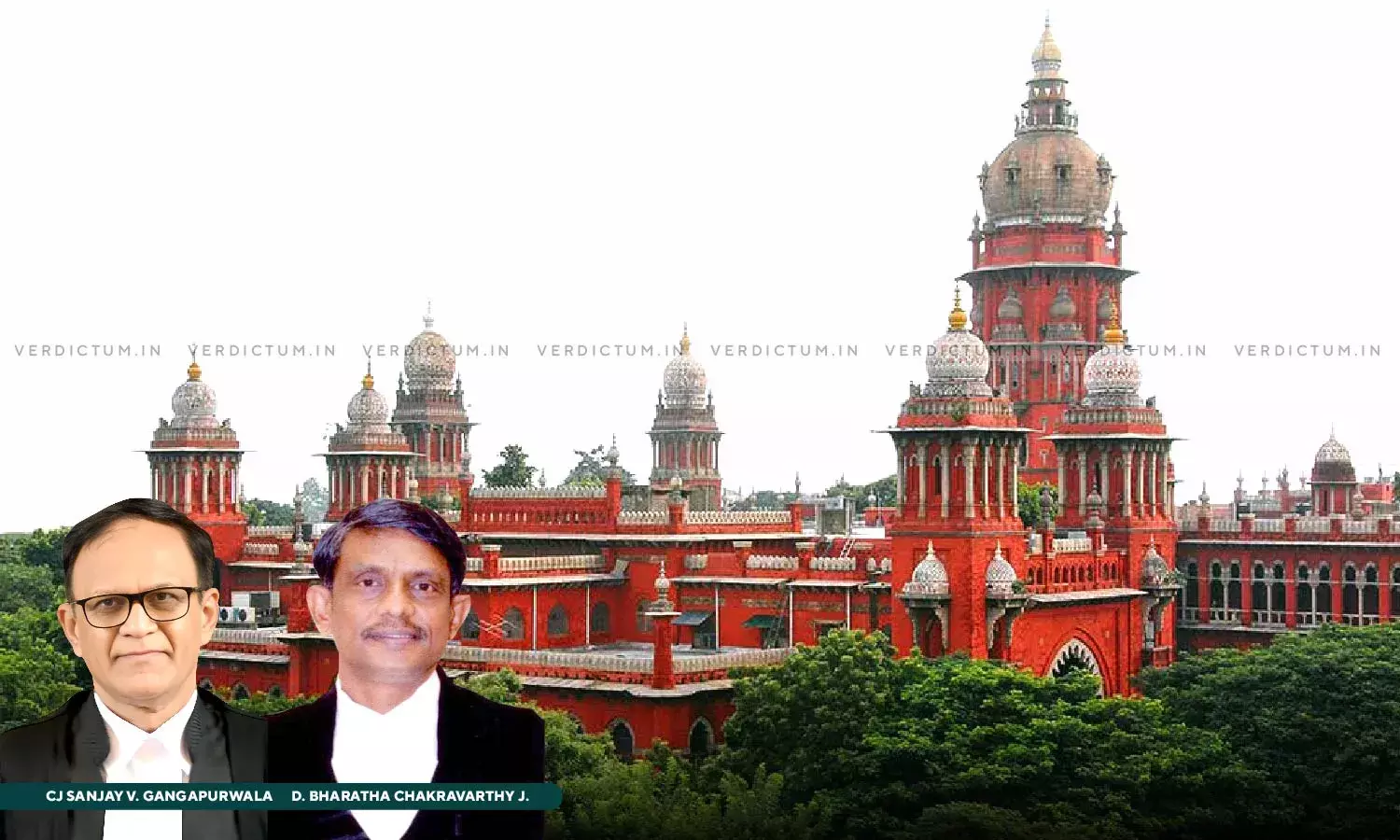"Merit Ought To Be Sole Consideration": Madras HC Rejects Plea Seeking Reservation In Appointment Of Government Law Officers
Madras HC Rejects Plea For Reservation In Appointment Of Government Law Officers

The Madras High Court dismissed a plea seeking reservation in appointment of Government Law Officers.
The court noted that the engagement of the Law Officers by the government is not on a civil post nor the relationship of master and servant exists between them, therefore, Article 16(4) of the Constitution of India mandating reservation policy would not be applicable.
The petition was filed in 2017 seeking vertical and/or horizontal reservation in appointments of the Law Officers by the government.
A bench of Chief Justice Sanjay V. Gangapurwala and Justice D. Bharatha Chakravarthy thus observed, “The reliance placed by the petitioner and the impleading applicants on the government orders and office memoranda providing for reservation even to contractual employees or any appointment above 45 days would not be of any avail. The said government orders and office memoranda would apply to those who are in employment of the government or the local bodies or the institutions. However, as discussed supra, the engagement of the Law Officers by the government is not on a civil post and these Law Officers are the employees of the government. In view of the aforesaid discussion, it cannot be held that reservation – vertical and/or horizontal needs to be provided while appointing the Law Officers by the government. The procedure is laid down. The procedure laid down does not suffer from the vice of arbitrariness, nor it can be said that the procedure is not transparent”.
Advocate M.Palanimuthu appeared for the petitioner, and Advocate General R.Shunmugasundaram appeared for the respondents.
In the matter, the petition impugned the “Appointment of Law Officers of High Court of Madras and its Bench at Madurai (Appointment) Rules, 2017” for Public (Law Officers) Department.
the petition sought directions to frame new rules to ensure transparency, adequate representation to women, scheduled castes, scheduled tribes and minorities; and to issue public notification for inviting applications from all the eligible candidates for appointment as Law Officers.
It was contended that the Appointment of Law Officers of High Court of Madras and its Bench at Madurai (Appointment) Rules, 2017 were framed with a view to bring transparency, however, the Rules of 2017 nowhere provide for reservation in appointment.
However, refusing to accept the contention, the bench observed, “The relationship between an advocate and his client is uberrima fides, i.e., one of active confidence and trust. The government is the custodian of public interest. It is the obligation and the duty of the government to protect the public interest to its optimum extent and in the best possible manner. This duty mandates the government to engage the most proficient, competent and capable persons to represent it, inter alia, the public interest. Ergo, in the selection of Law Officers, the government is duty bound to make earnest efforts to choose the best. In view of that, while selecting the Law Officers, merit ought to be the sole consideration”.
“The appointment of these Law Officers is at the pleasure of the government. The sine qua non is that the Law Officers selected by the government should be duly qualified, competent and worthy to represent it. The determination of their engagement is also at the pleasure of the government. So also, the Law Officer engaged by the government has a right to terminate his services with the government. It cannot be said that their appointment is a tenure appointment”, the bench further held.
Cause Title: Thol.Thirumaavalavan v. The Principal Secretary
Click here to read/download the Order

